How to choose the right hydrating face cream for your skin
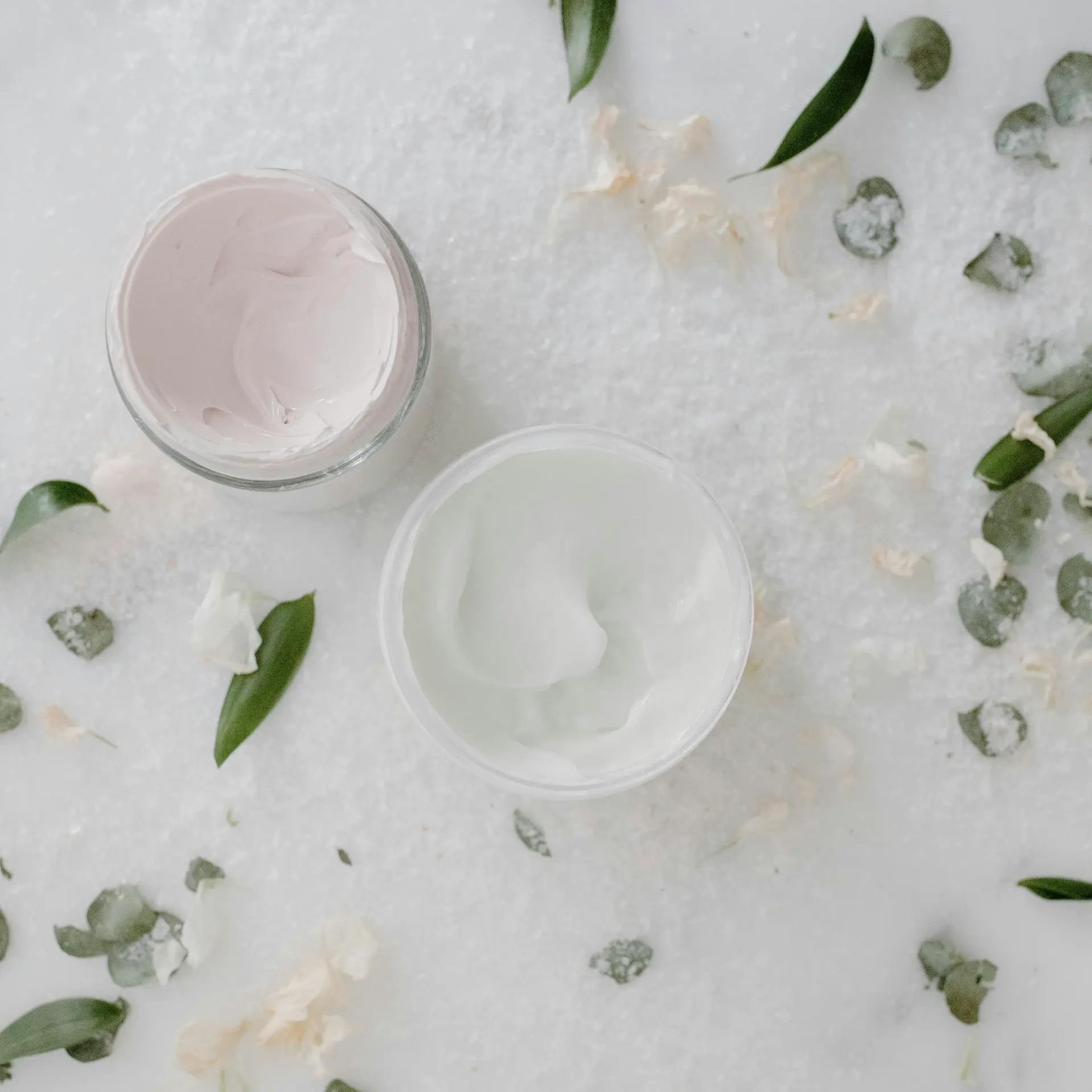
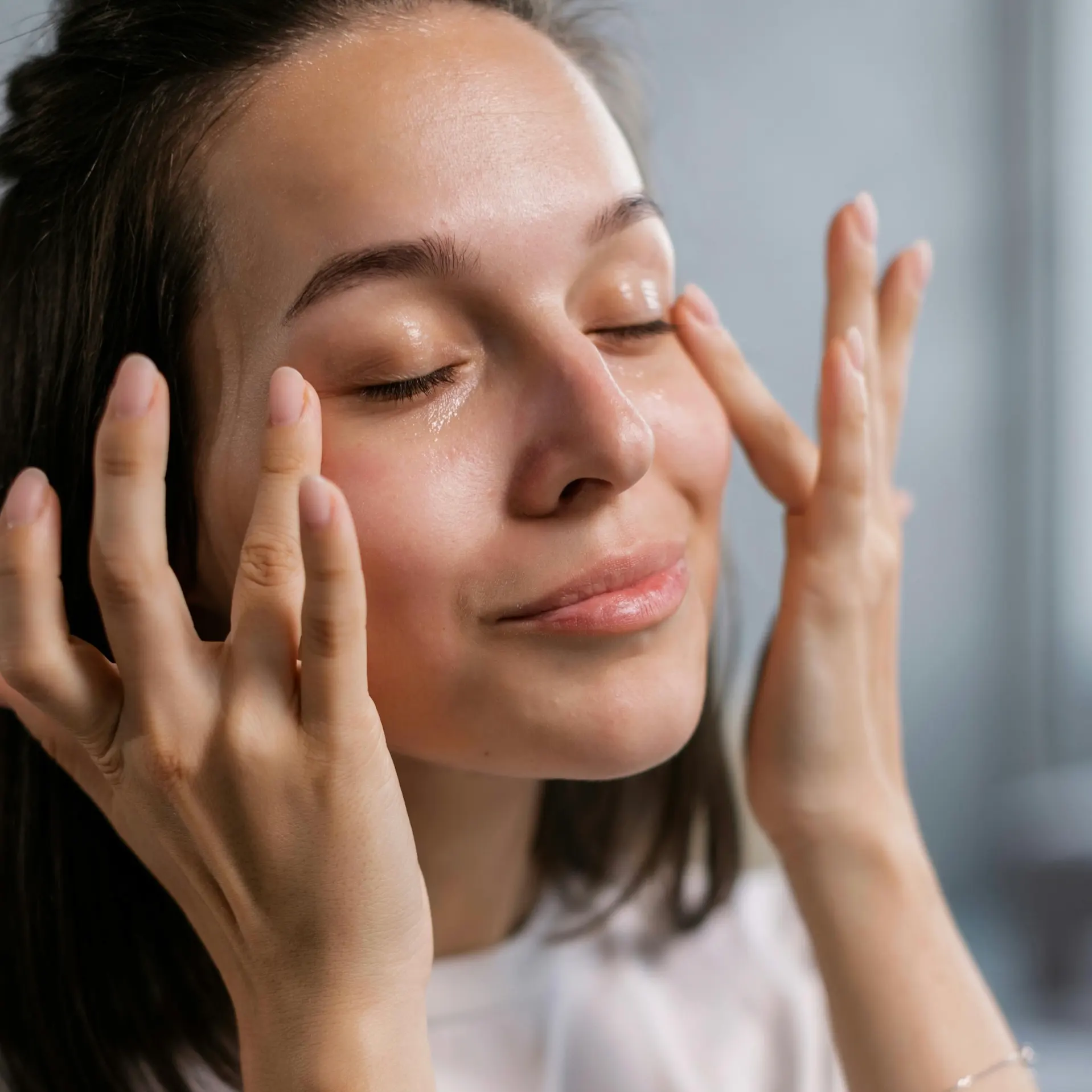
Finding a hydrating face cream that genuinely works can feel surprisingly confusing. With so many moisturisers promising glow, comfort, and long-lasting hydration, it’s not always clear what actually makes a difference to your skin.
The truth is, effective hydration isn’t about one hero ingredient or an expensive label. It’s about how a cream supports your skin barrier, how it holds onto moisture, and how well it suits your skin’s individual needs.
Whether your skin feels dry, tight, dull, or simply out of balance, understanding what to look for in a hydrating face cream can help you make a more confident choice, and get better results from your routine.
Key takeaways
- A good hydrating face cream supports the skin barrier, not just surface moisture
- The most effective formulas combine humectants, emollients, and occlusives
- Choosing a cream that suits your skin type helps prevent dryness and imbalance
- Seasonal changes can affect how much hydration your skin needs
- Ingredient quality and formulation matter more than price or marketing claims
Why skin hydration matters
Your skin naturally contains something called the Natural Moisturising Factor, often shortened to NMF. This is a collection of water-binding substances, including amino acids, sugars, and minerals, that help keep the outer layer of your skin hydrated and resilient.
When your skin barrier is healthy and well supported, it holds onto moisture more effectively. Skin tends to look smoother, feel more comfortable, and appear naturally radiant. If you’d like to understand more about how the skin barrier works and why it’s so important, you can read my full guide to skin barrier repair here.
When hydration drops, the opposite can happen. Skin may feel tight or rough, look dull, and become more prone to sensitivity and fine lines. Dehydrated skin can also struggle to protect itself properly, making it more reactive to environmental stress.
A well-formulated hydrating face cream works alongside your skin’s natural systems, helping to replenish moisture and reduce water loss over time.
What to look for in a hydrating face cream
Good hydration comes from balance, not from one ingredient doing all the work. The most effective face creams usually include a combination of humectants, emollients, and occlusives, each playing a different role.
Humectants, ingredients that attract water
Humectants draw moisture into the skin and help maintain hydration levels throughout the day.
Common examples include:
- Hyaluronic acid, which helps bind water and support skin plumpness
- Glycerine, a reliable and widely used moisture-attracting ingredient
- Saccharide isomerate, derived from plant sugars and known for long-lasting hydration
- Honey, naturally humectant and rich in antioxidants
- Snow mushroom, a plant-based alternative to hyaluronic acid with antioxidant benefits
- Aloe vera, which hydrates while soothing and supporting the skin barrier
- Xanthan gum, which also helps bind water within formulations
Together, humectants help improve skin comfort and reduce that tight, dehydrated feeling.
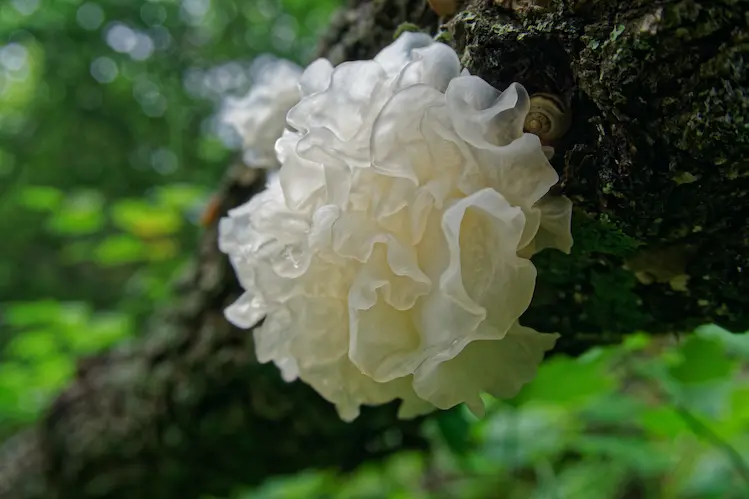
Emollients, ingredients that soften and smooth
Emollients help soften the skin and fill in tiny gaps between skin cells, making skin feel smoother and more supple.
Natural emollients often provide added benefits beyond texture, including essential fatty acids and antioxidants.
Examples include:
- Plant oils such as argan, avocado, grapeseed, apricot, sweet almond, sunflower, jojoba, and olive-derived squalane
- Plant butters like shea, cocoa, cupuaçu, and mango butter
These ingredients help improve skin flexibility and comfort, particularly for dry or mature skin.
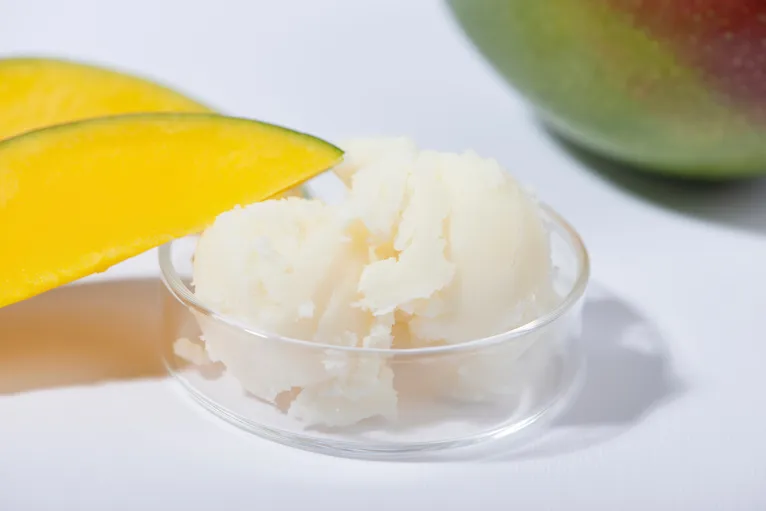
Occlusives, ingredients that reduce moisture loss
Occlusives sit lightly on the skin’s surface to slow down water loss, helping hydration last longer.
Examples include:
- Beeswax and plant waxes such as berry, carnauba, and candelilla
- Ingredients like jojoba oil, olive squalane, and many plant butters, which act as both emollients and occlusives
A good occlusive doesn’t feel heavy or greasy, it simply helps keep hydration where your skin needs it.
Other ingredients that support hydration
Some ingredients don’t fit neatly into one category but still play an important role.
Ceramides help strengthen the skin barrier and are especially beneficial for dry or sensitive skin.
Peptides support barrier function and skin resilience. When the skin barrier is compromised, hydration is harder to maintain, so these ingredients can indirectly improve moisture retention.
There are also innovative upcycled ingredients now used in modern skincare, such as botanical actives created from food or drink by-products, which can offer hydration benefits while reducing waste.
Matching your face cream to your skin type
Every skin type needs hydration, but the texture and balance of ingredients matter.
Dry skin
Richer creams with nourishing oils and butters can help restore comfort and protect the barrier. Ingredients like shea butter, avocado oil, and squalane are particularly supportive.
Oily or blemish-prone skin
Lightweight creams with non-comedogenic oils can hydrate without clogging pores. Oils such as jojoba, argan and pumpkin seed help balance without heaviness.
Sensitive skin
Look for calming ingredients like aloe vera, oat extracts, and centella asiatica, as well as prebiotics that support the skin barrier. Plant oils with soothing properties can also help improve comfort. Avoid synthetic fragrance, and choose a gentle, barrier-focused formula.
Combination skin
Balanced creams that hydrate dry areas without overwhelming oilier zones tend to work best.
How pH and seasonal changes affect hydration
Your skin’s natural pH is slightly acidic, which helps maintain a strong, healthy barrier. Harsh or overly alkaline products can disrupt this balance, making it harder for your moisturiser to work effectively.
Seasonal shifts also play a role. Cold, dry air and indoor heating can increase moisture loss, while warmer weather may call for lighter textures.
Listening to your skin and adjusting your routine through the year can help maintain consistent hydration.
Tip: During colder months, adding a drop or two of face oil to your moisturiser can offer extra comfort and nourishment.

Common hydration myths worth letting go of
“Oily skin doesn’t need moisture.”
Skipping hydration can actually encourage the skin to produce more oil.
“Drinking water is enough.”
Internal hydration matters, but your skin still needs topical support.
“More expensive means more effective.”
Ingredient quality and formulation matter far more than price.
Getting the best results from your face cream
Most skin types benefit from applying a hydrating face cream morning and evening.
For best results:
- Apply to slightly damp skin to help lock in moisture
- Use after any water-based serums and before sunscreen in the morning
- Adjust frequency if you use a nourishing face oil at night
Consistency matters more than using large amounts.
A face cream that supports hydration in more than one way
Once you know what to look for in a hydrating face cream, it becomes easier to recognise formulas designed to support the skin barrier rather than simply coating the skin.
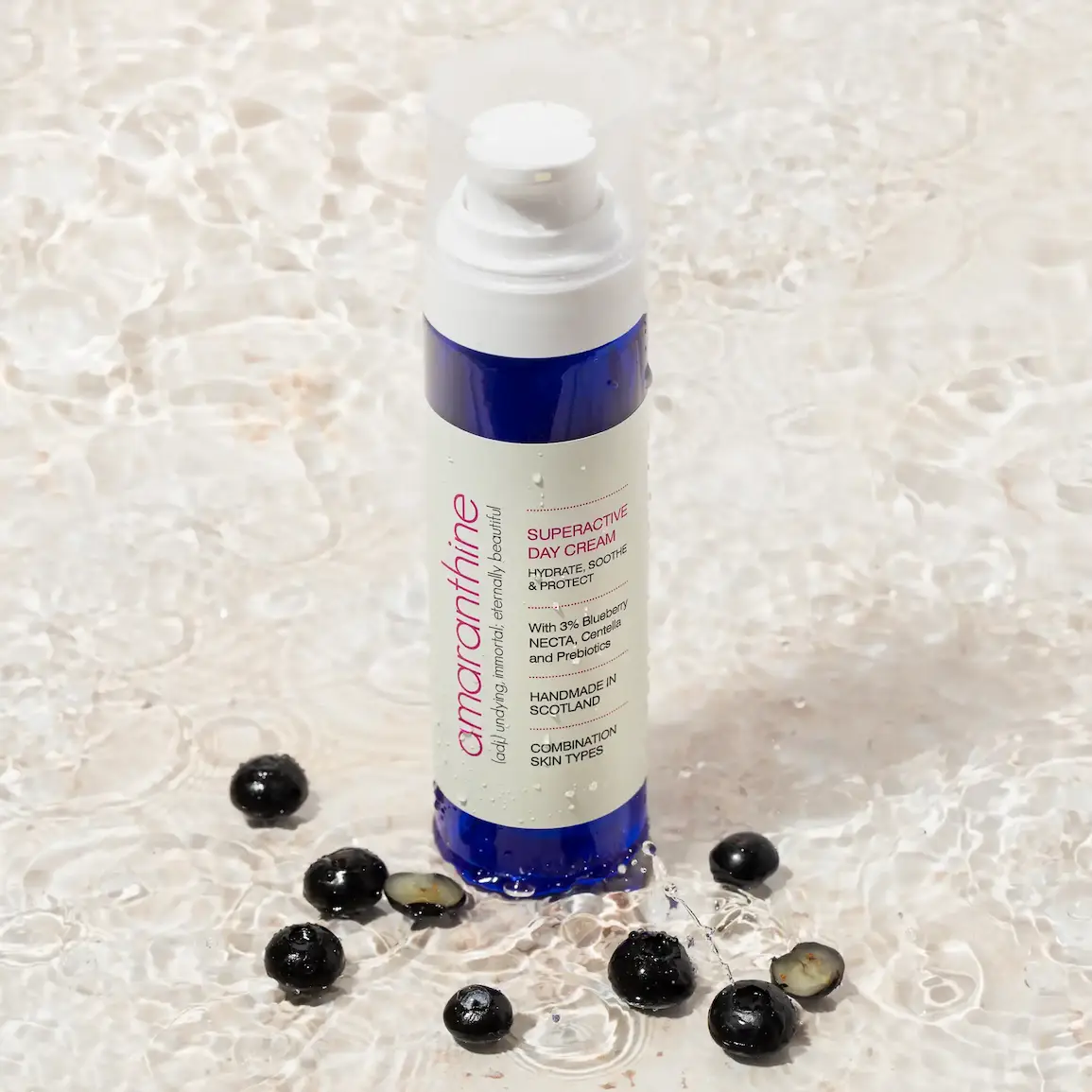
Superactive Day Cream was formulated with this in mind, combining humectants, emollients, and barrier-supportive ingredients to help skin stay comfortable, balanced, and well hydrated throughout the day. It’s designed to absorb easily, without heaviness or greasiness, making it suitable for daily use across a range of skin types.
“I really love this cream, it leaves my skin soft, smooth, and comfortably hydrated.” Louise
Final thoughts
Choosing the right hydrating face cream doesn’t need to be complicated. When you focus on barrier support, well-balanced ingredients, and what your skin actually needs, hydration becomes easier to maintain and far more effective.
A thoughtfully formulated face cream can help your skin feel calmer, smoother, and more resilient, day after day.
References
Jojoba Oil: A Superior Replacement for Mineral Oil, Cosmetics Business.
Natural or Synthetic Emollients? Physicochemical Properties of Body Oils in Relation to Selected Parameters of Epidermal Barrier Function.
Moisturising Effect of Cosmetic Formulations Containing Aloe Vera Extract Assessed by Skin Bioengineering Techniques.
Hydration and Barrier Potential of Cosmetic Matrices with Bee Products







